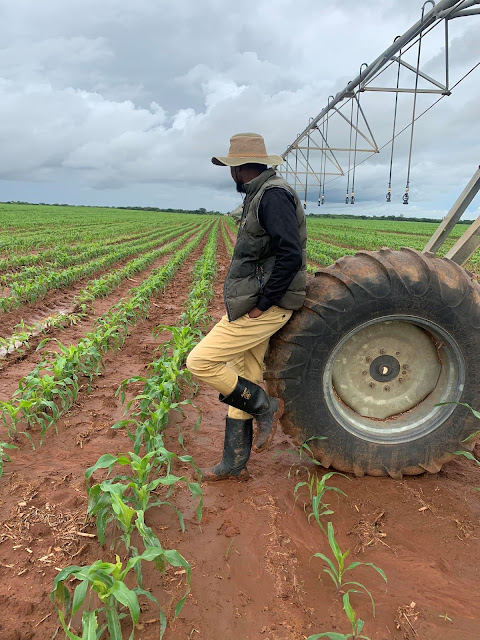Did you know that weeds
pose the biggest threat to our crops’ progress, causing unnecessary
competition, stress, diseases, and serving as breeding grounds for pests?
Therefore, it is wise for farmers to ensure early weed control to maximize crop
yield potential.
Many farmers ask Agronomist H. Kanyimbo, "How can we
control weeds in our maize fields?" Well, here is a simple guide for
maintaining a weed-free field, thanks to Agricrop for providing these
high-quality products.
Pre-Planting:
Before planting, farmers can spray a non-selective herbicide to eliminate
weeds. A recommended option for this stage is Roar Extra. If the land has been
ploughed, this step can be skipped, moving directly to the next stage.
Pre-Emergence
Stage: Herbicides
are applied at planting, within three days before crop germination. This
includes a combination of Roar Extra (if weeds are present, if not present
don’t add this product) plus Claw plus Atrazine. This combination prevents the
germination of broadleaf and grass weeds, allowing maize to grow without
competition. After three to four weeks, move to the next stage.
Post-Emergence
Stage: Herbicides are applied after the crop has germinated and
weeds start to appear. If no weeds are present at three to four weeks, you can
wait for another two weeks before applying post-emergence herbicides. The
recommended herbicide at this stage is the famous Anchor, controlling
broadleaf, grass, and seeded weeds, keeping the field weed-free until harvest.
Weeds growing after the crop canopies or beyond the critical eight-week period
pose no threat to maize yield.
Ensure herbicides are applied to moist soil for optimal
results; applying them to dry soil may yield poor results. All products
mentioned are supplied by Agricrop, a company offering high-quality products.
Stay tuned for the next post, focusing on nutrition and optimal application
timing for better results.
Yours
truly Agronomist H. Kanyimbo

Comments
Post a Comment